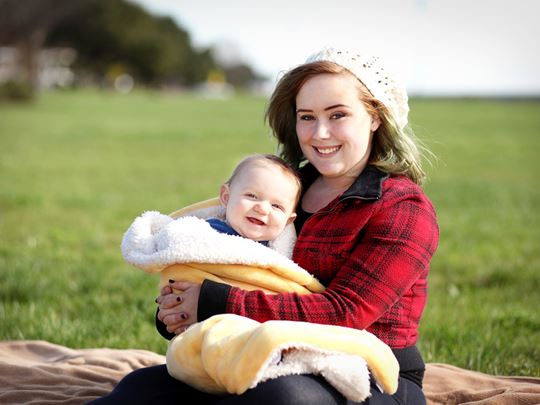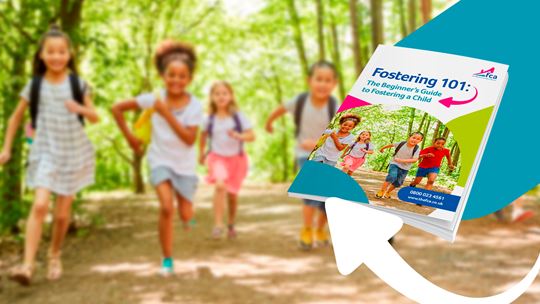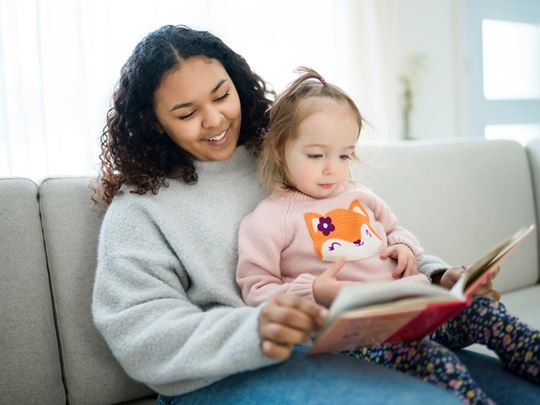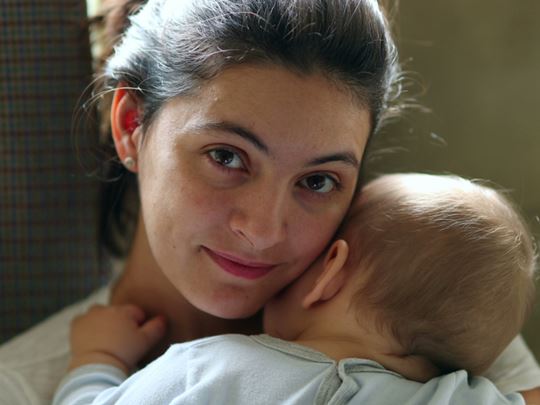One of the most rewarding types of fostering is parent and child fostering. This specialist type of fostering for parent and baby foster placements allows you to not only provide a safe home to a vulnerable parent and their child but to guide them in their parenting journey, supporting them and teaching them good parenting skills to create a better future for them and their family.
What is parent and baby fostering?
Whether it’s helping to prepare a pregnant mother for the birth of their child or opening your home to a young family who has come from a difficult background and need a safe and secure home as they learn parenting skills to care for their child, parent and baby foster placements are an incredible way to make a huge difference in a vulnerable family’s life.
Sometimes young parents need additional support or a safe place to live to look after their children. They may be lacking in parenting skills, or might not be a good role model for their children.
Other reasons why parent and child foster placements are necessary include:
- Teenagers who fall pregnant or become parents while in care.
- A young parent who needs to learn and demonstrate parenting skills.
- A parent who has a learning disability.
- Neglect or abuse of the child.
- Misuse of/withdrawal from drugs or alcohol.
- A parent who had a negative experience of parenting themselves and needs to learn good parenting skills in a safe and supportive environment.
- Parents who need a safe home.
- Parents whose parenting skills are classed as not “good enough” and need to be supported before being assessed.
- Concerns about a parent’s own self-care.
- A parent who hasn’t cooperated with or has difficulty with other forms of assessment.
You will need to help develop the full potential of the parents to achieve a good level of parenting so they can eventually move on and care for their children themselves.
It can be a challenging role in fostering, but it is definitely one of the most rewarding.
Different types of parent and baby foster placements
There are typically three main types of parent and child placements. Let’s have a look at them in a little detail.
Parent and child placements
A parent and child placement is aimed at parents who need to learn good parenting skills in a secure and consistent environment. As a foster parent, it’ll be up to you to nurture these skills and track the progress (along with your supervising social worker) of the parent.
Pre-birth placements
With a pre-birth placement, you’ll be caring for an expectant mother and helping her to prepare for her birth while guiding her through the role of being a parent. This is wonderfully rewarding as you’ll be supporting her on her parenting journey as well as getting to know and empathise with her background.
Assessment placements
These placements usually last for about three months and involve completing an assessment report of the parent’s ability to raise and care for their child.
So, why is parent and child fostering so important?
This specialist type of fostering gives you the unique opportunity to not only provide a safe and secure home for a vulnerable baby or child but their young parent too. You’ll have the responsibility to change both their lives, teaching essential parenting skills, and helping to guide the parent to be fully responsible for their little one.
Breaking the destructive cycle of poor parenting isn’t easy, and learning parenting skills doesn’t come easy for everyone, but showing love, empathy, kindness, and patience can help “break the chain” by supporting the birth family. Paving the way for a positive and hopeful future outside of the care system, keeping families together, and creating a positive, lasting impact.

Who would suit parent and baby fostering?
You don’t necessarily need to be a parent yourself to open your home to a mother and baby foster placement, but having basic parenting skills can certainly put you at an advantage.
There are so many transferable skills you can bring with you to make you an amazing foster parent for a vulnerable parent and child. Having experience as a parent will stand you in good stead, as will a naturally empathetic and caring, non-judgemental nature.
You’ll also need to have good basic life skills, as you’ll be supporting the parent in your care with independence skills such as cooking, cleaning, budgeting, and claiming benefits among others.
Before and throughout your placement, you’ll receive specialist training that covers everything related to caring for, safeguarding, and assessing your young family.
As parent and child fostering is a specialist type of foster placement, as well as the training you’ll receive you will also need to:
- Have a minimum of a year’s experience in mainstream fostering or experience in a relevant childcare profession.
- Have a large spare bedroom and reasonable living space.
- Have evidence of objective record-keeping and report writing.
Young parents who require fostering need to feel supported, so you’ll have to:
- Help them feel good about themselves.
- Comfort and support them.
- Show them they can trust and lean on you.
- Have the patience to put up with any negative traits.
- Support them during a time of crisis.
- Support them to develop parenting skills no matter their community or cultural background.
- Help them understand their child’s development so they can respond to their child’s changing needs.
- Help them understand their child’s needs and not make them feel inferior if they don’t understand them.
- Help them feel valued.
- Give them the opportunities to develop their parenting skills and knowledge.
Sometimes, parents who need parent and baby fostering haven’t had a positive parenting experience themselves. It can be tricky to change their views, but this is part of the rewarding challenge of the role.
You’ll need to consistently repeat appropriate interactions and help them reflect on their own experiences of being parented. By building a bond with the parent, you can start creating a powerful, positive relationship that could change their outlook and help them become a better parent themselves.

Are you thinking of fostering?
Download the FCA’s complete beginner’s guide to fostering a child. Find out more on how to foster a child and the process involved.
Record keeping and report writing
Being organised is another trait you’ll need with a child and parent foster placement. Part of the placement includes recording the progress the parent in your care is making, which can be used as evidence in court or in reviews and for completing assessments. Records help monitor child development, provide feedback, provide objectivity, support applications for additional support, and much more.
A few examples of the types of records you’ll need to keep include daily record sheets, weekly progress, menu planners, feeding and changing diaries, task diaries, budget planners, and resource files.
These records are key as they help provide a detailed picture of the parent’s ability to care for their child or children. Part of your role is to model good parenting skills so the parent in your care can observe them.
While there can be a big difference in the nature of parent and baby foster placements, there is always a need for recordings, so this is something to keep in mind. Don’t worry though, our team will always be on hand to support and guide you.

Skills needed for parent and child placements
Here are a few of the transferable skills that would help make you a wonderful foster parent to a parent and child.
Empathy
With mother and baby fostering, unlike fostering a baby, you’re taking on the parent too, and you need to be able to demonstrate empathy.
Why is empathy important when it comes to parent and child fostering? Because you need to have the ability to truly feel what the parent is feeling. There are a number of reasons why a parent and baby/child come into foster care, which can range from anything such as neglect, abuse, misuse or withdrawal from drugs or alcohol, age, safety concerns for the parent or child, insufficient parenting skills, or learning disabilities.
As a foster parent, it’s crucial that you embrace your mother and child without judgement, and instead, put yourself in their shoes. They might not have had positive parenting role models themselves, so can’t draw on their experiences to provide a nurturing home for their child. This is your chance to make a massive difference and help break the chain.
Patience
There is nothing more rewarding than supporting and caring for a young parent as they learn the parenting skills to help them care for and nurture their child. But it can take a lot of patience as you help them on their journey. It might feel frustrating at times, especially if you’re already a parent and basic parenting skills come easily to you, so having patience and kindness is key.
Teaching
One of the main goals of fostering mother and baby is to teach the young parent essential parenting skills that will allow them to care for their child on their own. This can include independence skills such as cooking, cleaning, budgeting, life skills, claiming benefits, etc. You might already have these skills to share, but you will also be given specialist foster care training which covers everything relating to caring for, assessing, and safeguarding a young family.
Experience
If you are keen to embrace a rewarding new career and want to impart your parenting skills from your years of experience, then fostering a baby and their parent could be just what you’re looking for. The desired outcome of parent and child fostering is that, where possible, families are kept together. Your experience and natural caring, patient, and empathetic skills can help make this happen.
Mother and baby fostering allowances
Caring for a vulnerable parent and child is an important role, and we want our foster parents to feel supported and reward them for their hard work, love, and dedication to changing lives. This is why we offer generous parent and baby fostering allowances.
Our parent and baby fostering allowances, while there is no single, set amount, vary depending on the number of children that come into your care, the needs of the mother and child, and the region where you live. You will also receive lots of rewards, paid respite, summer and winter bonuses, appreciation bonuses, and discounts from your favourite high street shops.
The competitive allowances and payments you receive will allow you to earn a good income, and eliminate money worries while providing a happy and nurturing home to young families who need it most. And as a foster parent, you will be entitled to not only significant tax relief but you might also be entitled to other benefits. If you have any questions regarding our allowances then please do give us a call.

You can make a difference
If you’re looking for an exciting and rewarding new career, then becoming a foster parent for a parent and child could be just what you’re looking for. By sharing your experience and offering support and guidance, you’ll be helping a young family stay together.
When you foster with FCA, you will never be alone. We’ll be there for you 24/7 and you’ll receive our comprehensive foster care training to help you change lives forever. Get in touch with our friendly team today and we’ll answer any questions you might have.
Speak to our team
Whether you’re ready to start your journey or just want to chat to one of our friendly fostering advisors, get in touch with us today.
Enquiry Form
The company takes the requirements of GDPR seriously in ensuring the privacy and lawful processing of personal data provided to us by you. Please view our privacy notice which explains how the company will manage and use your personal data. This site is protected by reCAPTCHA and the Google Privacy Policy and Terms of Service apply.